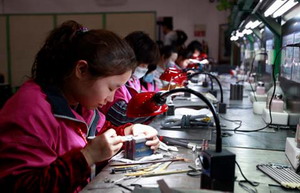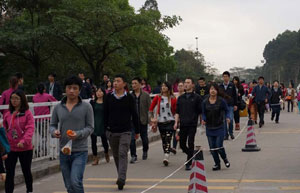

"The average urban worker leads a somewhat basic but reasonable life and aspires for financial security, a good quality of life for the family, and to own an apartment, if he or she doesn't already," he says. "The life of most rural (and) migrant workers is somewhat unstable and they struggle to make a living. Their dream is to make more money."
Speaking in generalities about a nation of 1.3 billion people is difficult, Kam says, but he believes the past decade has seen the Chinese worker undergo a change in characteristics and lifestyle.
"They are more educated, and they make more now," he says. "They also have more job choices."
National Bureau of Statistics figures show the average yearly wage for Chinese urban workers in 2003 was 14,040 yuan. The most recent figures (from 2012) reveal annual wages for urban workers have more than tripled to an average of 47,593 yuan.
The average rural net income per capita has tripled over the same period from 2,622.2 yuan in 2003 to 7,916.6 yuan in 2012.
But calculations based on data from the National Bureau of Statistics show the basic cost of living has also skyrocketed in China.
In 2003, the annual average cost of living for each rural Chinese worker was 1,943 yuan, or 74 percent of the average rural net income per capita.
By 2012, the figures show price rises for basic consumables had kept pace with the rise in rural income, with the average cost of living for each rural worker about 5,908 yuan, or 74.62 percent of the average rural household income.
The numbers paint a much rosier picture for urban dwellers.
In 2003, the annual average cost of living for an urban dweller was 6,510 yuan, or 46.37 percent of the average wage.
In 2012, the annual average cost of living for an urban dweller was 16,674.3 yuan, just 35 percent of the average wage.
 |
 |
 |
| A day at the Foxconn frontline | Foxconn exclusive: China faces at core of Apple products | Foxconn soldiers on in Shenzhen |